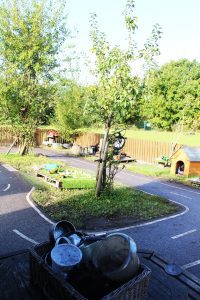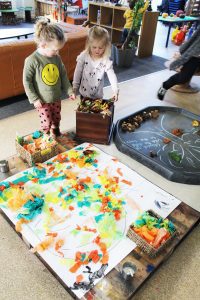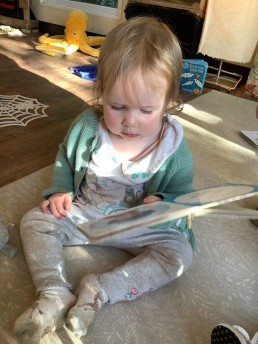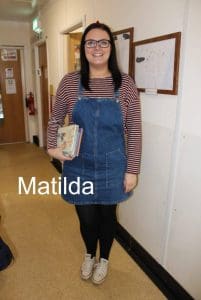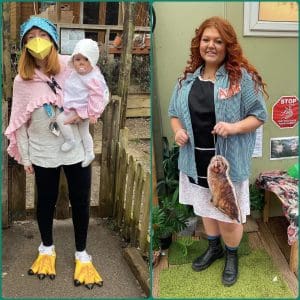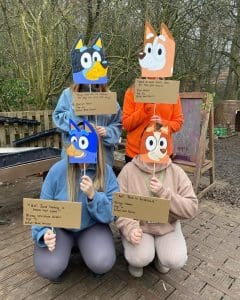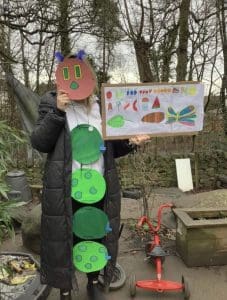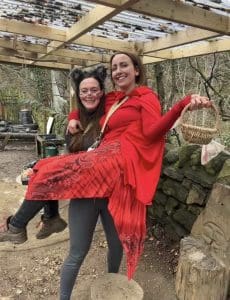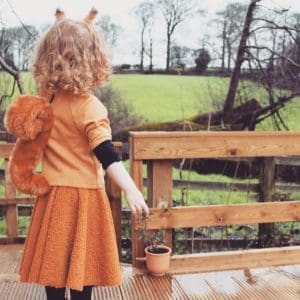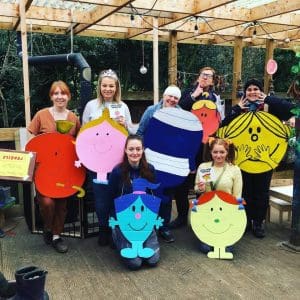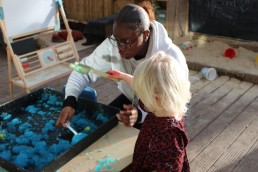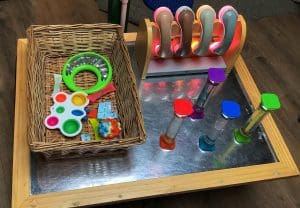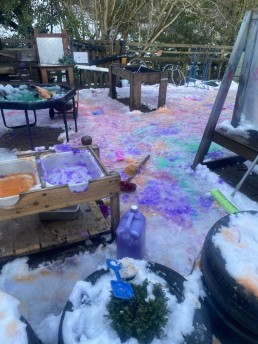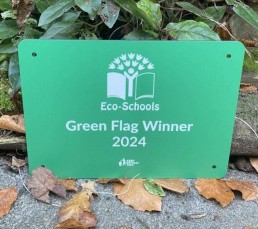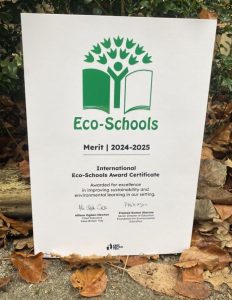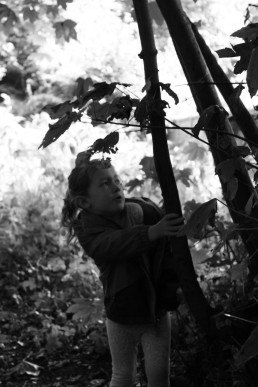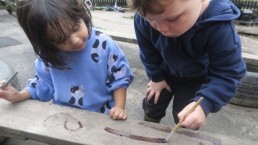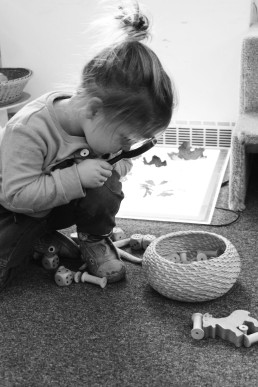Toilet Training
Toilet training is an important milestone for both parents and children. This subject has been in the news a lot lately regarding late training of children and the difficulties this entails. At Inspirations we often support parents to potty train their children, working together and communicating throughout. Before your child reaches three years old, they may be developmentally ready for the transition to using the toilet. However, every child is different, and patience is key. Here are some practical tips to make toilet training a smoother experience for both you and your preschooler.

1. Recognise the Signs of Readiness:
- Staying dry for longer periods
- Expressing discomfort with dirty diapers
- Showing interest in using the toilet
- Being able to follow simple instructions
- Communicating when they need to go
2. Create a Positive Environment
Make the toilet-training experience positive and stress-free. Use encouraging words, go shopping and let your child choose their own fun underwear and potty or toilet seat, avoid pressure or punishment. A relaxed positive approach will help prevent resistance.
3. Establish a Routine
Consistency is crucial and the more consistent the quicker the process. Begin to use the pants they chose and only keep nappies for bedtime. Once in pants stay in pants. Avoid pull- ups as they are too similar to nappies, without feeling the discomfort, children will not feel the need to use the toilet. Take your child to the toilet at regular intervals, every one to two hours to build a habit and other times such as after meals or before bedtime. It is easy to forget but this does make a big difference. Celebrate any successes and don’t become complacent after wards, continue regularly sitting them on the potty.
4. Use Training Tools
Consider using training aids like:
- A child-friendly potty chair
- A toilet seat reducer
- Books and videos about potty training
- A reward system (stickers, praise, or small treats)
5. Encourage and Celebrate Success
Every small step is progress. Celebrate your child’s successes, even if they are minor, to build their confidence. Positive reinforcement can make a huge difference. If they see your joy after any small attempt, they will be more likely to want to do it again.
6. Be Prepared for Accidents
Accidents will happen—it’s part of the process. Keep extra clothes handy and clean up without frustration. Reassure your child that accidents are okay and that they will improve with time. Staling a few minutes to change them into nice dry clothes gives time for the child
to feel the discomfort, rather than rushing to get them out of them. Don’t give up and think they are not ready, they are just learning.
7. Teach Good Hygiene
Instil proper hygiene habits by teaching your child to:
- Wipe properly (front to back for girls)
- Flush the toilet
- Wash their hands with soap and water
Toilet training a child requires patience, encouragement, and consistency. By creating a supportive and positive environment, you can help your child successfully transition to using the toilet. Remember, setbacks are normal—stay positive, and soon your little one will be
nappy-free!
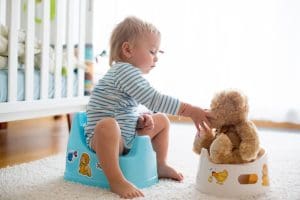
The Importance of Reading in the Early Years
Did you know that children develop more rapidly in the first 5 years of their lives than at any other time? Vital connections in the brain are made very early in life and when stimulated, these form the basis of all future learning and intellectual ability. To put this simply, reading to your children at a young age stimulates these brain cells and each time it strengthens them, and they form connections with even more brain cells. A study states that even children who are only read one book a day will hear 290,000 more words by age 5 than those who don’t regularly read books with a parent or carer.
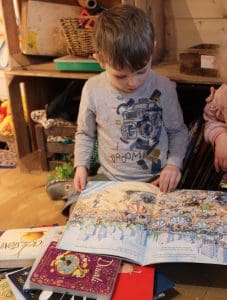
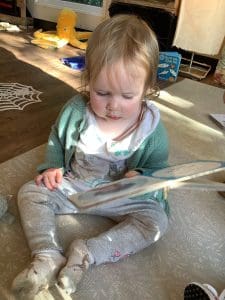
Early reading ignites creativity and curiosity, and the biggest psychological benefit is how it helps to grow self-confidence. It is a skill that parents can nurture in those early years, and simply taking some time out of your day to sit down and read with your child supports this and will create a solid foundation from which your child can build on for the rest of their life. Reading doesn’t necessarily have to be in word/text form, signs such as road signs, logos and pictures are further examples of ways in which children can develop their reading skills.
As you are aware our ethos at Inspirations is child led and although we never force the children to partake in anything they don’t wish to, we do provide many opportunities for the children to explore and challenge themselves daily, to enable different learning opportunities and develop many skills throughout their time with us. Some examples of how we promote early reading are:
- Books – age related to each room. These can range from picture books to touch and feel books, to shorter stories with few words and longer stories with more words. We display these in different areas as well as creating a quiet, calm and cosy space for the children to be able to have time to explore books to encourage curiosity and language. We rotate the selection regularly, and incorporate books to support current interests and topics.
- Name cards – These are primarily displayed in our preschool provision for the children to access should they wish to explore finding their own name and sometimes attempting to label their work.
- Words/questions around the room – These can be words and questions related to current interests and topics, to spark further language, imagination and conversations.
- Different languages – Should we have children with additional languages we display everyday words and phrases, as well as related books, around the rooms to support their culture and heritage.
- Story telling – We create open, safe spaces for the children and provide versatile, open ended resources to be able to express themselves imaginatively and creatively.
- Early phonics – Whether it be environmental, instrumental, spoken sounds and languages to exploring initial sounds, rhyming words and blending/segmenting – we incorporate Phonics into our everyday routines but do support this more during school readiness and through the children’s individual interests and abilities.
- Pictures as symbols – Simple props such as wooden spoons and log slices, with song illustrations on them such as ‘Baa, Baa black sheep’, and ‘Twinkle, Twinkle little star’ help to make links and realisations that images are symbolic.
- French – We provide an opportunity once a week in our preschool provision for the children to explore and express themselves through another language.

The annual book celebration WORLD BOOK DAY is fast approaching. It allows children to express themselves imaginatively and creatively and encourages them to engage with reading, as well as providing fantastic opportunities to focus on reading for pleasure and embedding a habit of reading that brings a wide range of benefits. This year World Book Day is on Thursday 6th March, please join us to celebrate by dressing your child up as their favourite book character, if they wish to do so.
Let's take a look at some of the outfits from previous years
The Advantages of Apprentices in Early Years
A Success Story from Inspirations Nurseries
In the world of early years education, the value of apprentices cannot be overstated. At Inspirations Nurseries, we have witnessed first hand the incredible impact that apprentices bring to our team and the children we serve. One shining example is our manager Kayleigh, who started her journey with us at the young age of 17 as an apprentice. Today, she not only manages our nursery but also serves as our Special Education Needs Coordinator and Behaviour Management Coordinator. Her story exemplifies the profound advantages of
apprentices in early years settings.
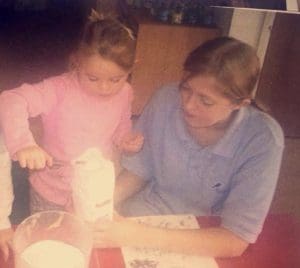
Kayleigh’s journey illustrates how apprentices gain invaluable skills through hands-on experience in the workplace. During her apprenticeship, she learned essential competencies that are crucial for working with young children, such as communication, empathy, and behaviour management. These skills are not just theoretical; they are developed through daily interactions with children, parents, and colleagues. As a result, apprentices like Kayleigh become well-rounded professionals who are equipped to handle the challenges of
early childhood education.
Pathways to Further Education and Diverse Careers
One of the most rewarding aspects of our apprenticeship program is witnessing our apprentices pursue higher education and explore various career paths. After completing her apprenticeship, Kayleigh went on to earn her degree, paving the way for a fulfilling career in
early years education and beyond. Many of our apprentices have similarly transitioned into higher education, leading to careers in fields such as teaching. This versatility not only benefits the individual but also enriches our community by producing skilled professionals
across various sectors.
Building Strong Relationships with Children
Apprentices often bring a unique energy and enthusiasm to the workplace that resonates with young children. Their approachable demeanour creates a nurturing environment where children feel comfortable and valued. The relationships that apprentices build with the
children are often characterized by trust and affection, which can significantly enhance the learning experience. Children adore their apprentices, and this bond fosters a positive atmosphere conducive to growth and development.
Fresh Perspectives and Innovation
Apprentices can introduce fresh ideas and perspectives into the early years setting. They often come with a willingness to learn and adapt, which can lead to innovative practices that benefit both children and staff. Their enthusiasm can inspire seasoned educators to rethink
their approaches and embrace new methodologies, ultimately enhancing the quality of education provided.
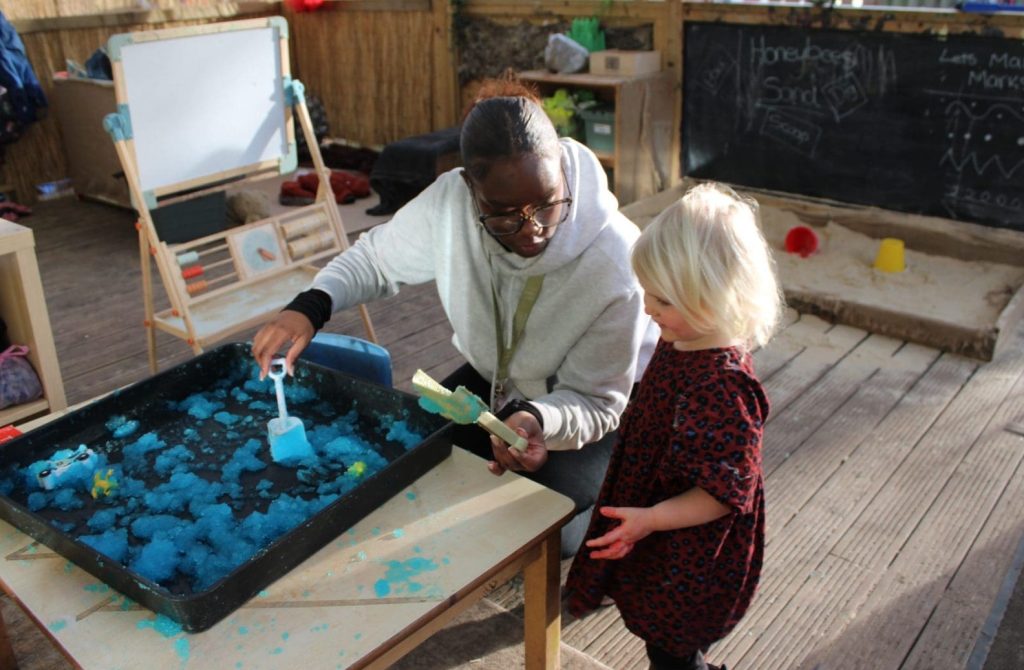
A Sustainable Workforce for the Future
Investing in apprentices is not just about immediate benefits; it also contributes to the sustainability of the early years workforce. By nurturing new talent, we are securing the future of quality education for our children. Apprentices who grow within our organization often become passionate advocates for early years education, ensuring that the next generation of educators is both skilled and dedicated.
The success stories of apprentices like Kayleigh at Inspirations Nurseries highlight the myriad advantages they bring to early years education. From gaining practical skills and pursuing higher education to building meaningful relationships with children, apprentices are
invaluable assets to our workforce. As we continue to invest in their development, we not only enrich the lives of the children we serve but also foster a vibrant community of passionate professionals dedicated to making a difference in the world of early years
education. Embracing apprentices is not just a strategy; it's a commitment to nurturing the future of our children and our profession.
-Tara
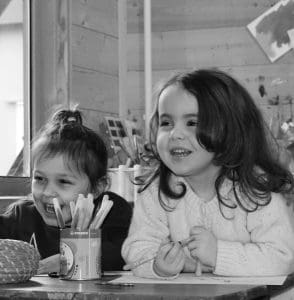
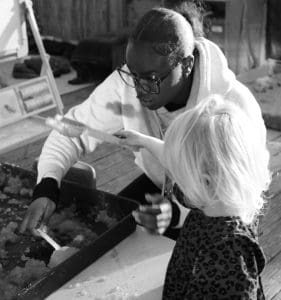
Supporting SEND in Early Years Settings
Early years settings are crucial in providing support for children with Special Educational Needs and Disabilities (SEND). By fostering an inclusive, personalised environment, children with SEND can thrive socially, emotionally, and academically. At Inspirations we are passionate about supporting all children and inclusivity, even if that means we need to provide extra support.

Here’s how we support our children:
1. Inclusive Environment
We create accessible spaces and use adaptive tools to ensure all children, regardless of their needs, can participate. This includes accessible rooms, sensory-friendly areas, and visual aids to support communication.
All the activities are accessible for all abilities. For example, in the preschool room a numeracy activity with a variety of numbers will be set up and how the adult supports a child to interact with that activity depends on their ability. There could be numbers out and other resources; for one child we could simply ask them what they see and encourage counting, whereas another child we might ask to them match the numbers or put them in a sequence. This is why it’s important we get to know our children and we can do that through child led learning.
2. Individualised Support Plans
Every child’s needs are different. Tailored plans—such as Individual Education Plans (IEPs)—will be created by the child’s key worker, with a sencos (special educational needs and disabilities coordinator) support. Regular reviews ensure there is ongoing support and monitor progress. For children that receive any inclusion funding, the parents are asked to come in on a termly basis to create targeted outcomes together and celebrate achievements.
3. Trained Staff
Educators working with children with specific needs receive ongoing training in various SEND-related areas, such as autism or speech and language development. This equips them to respond effectively to each child’s needs. We have two trained sencos onsite to support the staffs development and training needs. Many of the other staff have shown an interest in training in other areas such as communication and language barriers and supporting behaviours etc.
4. Emotional and Social Support
We support children to develop their social and emotional skills through activities like social stories, role-playing, and peer interaction. Providing emotional regulation tools such as sensory breaks, supports children when they’re overwhelmed. In the preschool room, we have just purchased a variety of sensory toys, including a large light table and a dark den.
5. Collaboration with Parents and Professionals
Effective communication with parents ensures consistent support at home and nursery. Collaborating with specialists, such as speech therapists, provides a holistic approach to each child’s development. As above, we review on a termly basis using a senit dj ( special educational needs development journal), this is the EYFS (early years foundation stage) in smaller steps to enable us to see and monitor progression, and to enable us to have a more tailored targeted approach. Parents of children that are funded with early years inclusion funding are invited into nursery to discuss progression and create the next terms targets collaboratively.
6. Fostering Independence
Encourage children to develop independence by celebrating small achievements and teaching self-advocacy skills. This boosts their confidence and helps them navigate challenges. Rather than recruiting a one to one for the children that require additional support, we would choose to recruit an additional member of staff to be there to support when needed but to also allow and encourage children to develop their own independence and learn how to navigate with support rather than done for them.
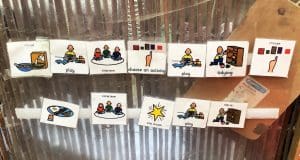
Did you know you we offer Send Forest School Sessions open to the public on Thursdays, to book your place visit the following link- https://inspirationsnurseries.co.uk/forest-school-training-and-sessions/sessions/send-sessions/
Early years settings play a key role in supporting SEND children by creating an inclusive, tailored environment. By focusing on individualised support, strong staff training, and collaboration with families and professionals, these settings ensure that every child can grow and succeed at their own pace. This is a belief we have for all children, not just those with SEND. Child led learning and having keyworkers allow us as educators to observe our children, listen to their questions and their stories, find what interests them and then provide them with opportunities to explore these interests further. The Reggio Emilia Approach takes a child-led project approach. The projects aren’t planned in advance, they emerge based on the child’s interests. With individualised plans for those children with SEND being tailored to them, we also carefully plan their activities through their interests to help support them to reach their outcomes.
-Kayleigh

Such Little Time, Snow Much to Do!
Happy New Year to you all, we welcome you all back to a very cold start to an exciting new year full of potential, growth, and discovery. (Please do be careful on the school path when walking down to nursery!)
We look forward to the year ahead, and everything it brings. 2025 is the year some of your little ones start school, or perhaps it means some of the little ones moving up a room, or even joining us for the first time.

Have you spotted your first snowdrop yet? Keep your eyes peeled for the first ones starting to emerge around nursery. This amazing little flower has the power the push up through the snow, with its hard tipped leaves and its antifreeze proteins.
As a Forest School with an outside all year round moto we embrace all weathers, so let's see how we can incorporate this blanket of white into our children's play at nursery or at home.
Snow Play Ideas
- Snow 'Mud' Kitchen- pots, pans, mashers, cones for ice cream play
- Footprints in the snow- Guess which shoe print belongs to who
- Snow Painting- Use non toxic watercolours to add colour to the ground
- Create a Snow Volcano
- Snow mark making and digging, with sticks, cookie cutters etc
- Small World Area- Polar Animals
- Nature Walks
- Visit the local playground, does it look different in the snow
- Sledgeing with baby dolls
- Snow construction- Make Snow bricks to build a house
- Snow castles
- Snow Balls to see how many you can throw into a bucket
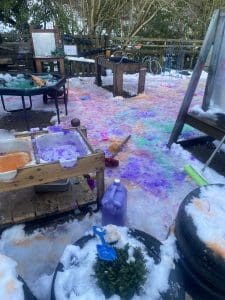
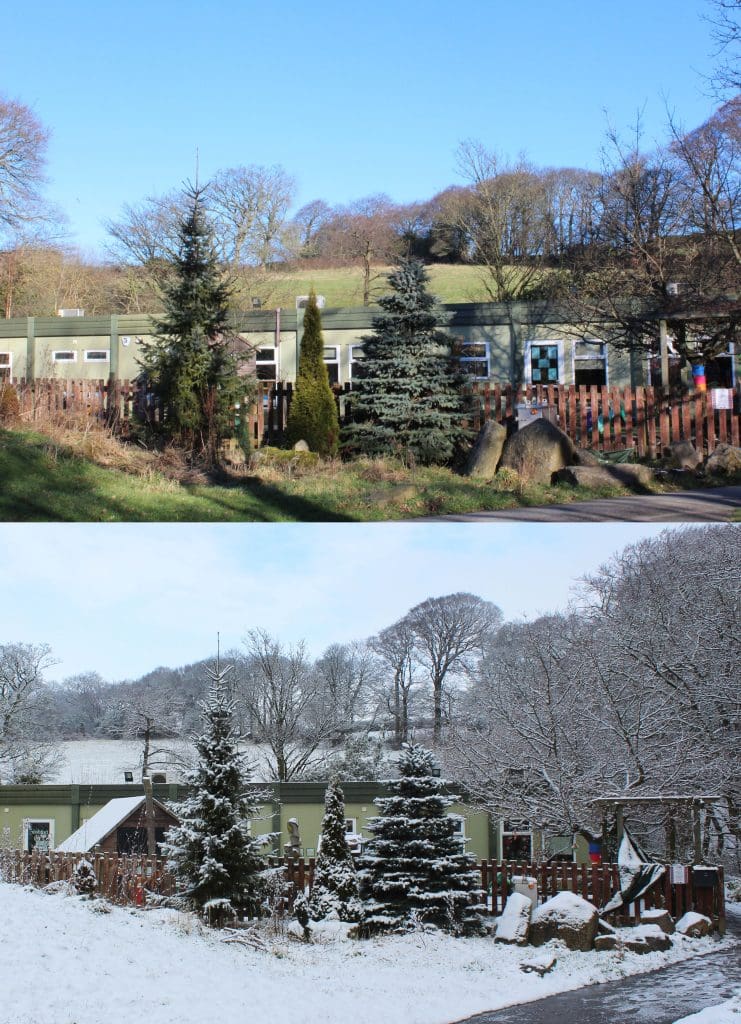
We Wish You A Merry (Eco) Christmas
First of all we want to thank you all for coming to our Inspirations Christmas party at the Grove. It was a wonderful reminder of the community we have built from Inspirations, and of course some of the outfits were spectacular. We donated all the leftover trays of prepared food to an event that evening for the homeless, organised by Hidden Homeless. 
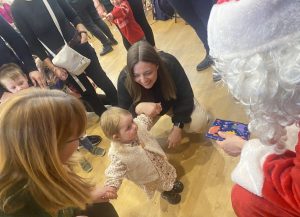
But it’s not just the season for socialising, it's also the season for relaxing, indulging and spending time with loved ones.
In this weeks blog we want to share some tips on how to help look after the planet this Christmas.
Wrapping
Use brown paper to wrap your gifts, and always avoid shiny paper that can't be recycled. Why not use fabric that can be used again and again. Say No to plastic sellotape; order your recyclyable tape here https://www.peacewiththewild.co.uk/product/biodegradable-paper-tape/?gad_source=1&gclid=CjwKCAiA6t-6BhA3EiwAltRFGJPUpmAoUNiSHCZqyHxak4z3kLAFV2jFf3Af5xF3bbc8LkJtdKo7bhoCbe8QAvD_BwE

Gifting
Remember quality not quantity. Shop Local, shop Facebook Market Place, re-gift or even have a go making some gifts yourself. This year I have made a little dolls house inside a small vintage suitcase.
Eat Responsibly
Why not sign up to get a local veg box available at Meanwood Valley Urban Farm or Sutcliffe's Farsley. Save your leftovers, add some wax cloth cover to your christmas list.
Did you know poultry is in the top 10 most wasted foods in the UK and 100,000 tonnes of it ends up in the bin every year. The livestock industry generates 14.5% of all man-made greenhouse gas emissions. It requires huge amounts of space, water and feed. Instead, you could try a meat alternative.
Christmas Tree
Plant your Christmas tree in your garden after Christmas, you can even re use this each year. Of course if you have a fake tree that get's used year after year this is fabulous too.
Compost
Get yourself one of our Grey Compost caddies from outside our Pre-School Outdoor classroom. Fill it with cardboard, fruit and veg waste, egg shells, tea and coffee and bring it back to us to make compost.
What green act will you commit to this christmas? Let us know and we woud love to share.
Have a wonderful and happy festive period, and don't forget to get out into nature and enjoy all that we have for free.
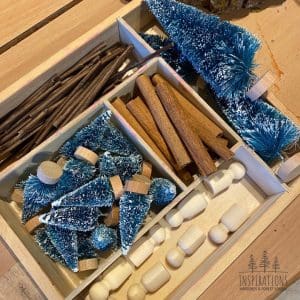
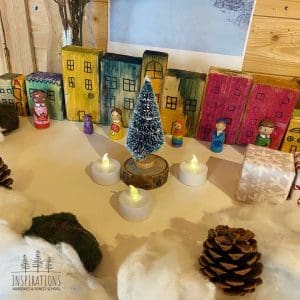
Eco-School Green Flag Winner
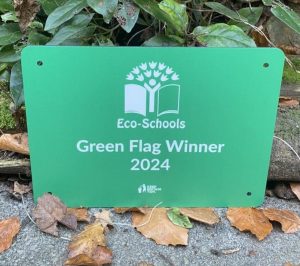
We are proud to announce we have been accredited the Green Flag plaque and International Eco-Schools Award Certificate thanks to the hard work of Tara leading our Eco-School Team, our children and their grown ups. Thank you also to Penny Pinn who has given up her free time to train our staff in composting, and thank you to Leeds FoodWise and Compost Collective.
'Awarded for excellence in improving sustainability and environmental learning in our setting.'
So what exactly have we been doing in our nursery to win this award?
- With the help of Compost Collective we had 3 compost bins installed, which we are now excited to share with West End Primary school. The staff and children have been taking home compost caddies to fill up at home and bring in to compost to do our bit to combat climate change.
- We have been doing the battery challenge, taking in used batteries from the nursery and the community to recycle properly.
- Our Nursery have donated items to the food bank and our pre-school children have taken it to the Horsforth Community Cafe and even helped unpack and prepare.
- We took part in the big bird watch.
- We do seasonal clothes swap events
- The Forest School and our ethos we continue to teach the children to respect nature, look after our planet and be resilient in all weathers.
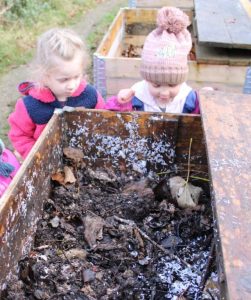
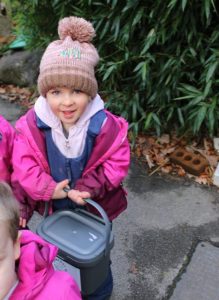
What they said about us
'You have used environmental issues to enrich learning and increase engagement with learning in your nursery and this is something to be very proud of. Your Eco-Committee have used a wide variety of methods to inform their school community about their work including fortnightly newsletters, social media and community links with Friends of Hunger Hill Woods, this shows they take pride in their achievements and are working hard to involve and educate all around them.
You have worked with a variety of different individuals and organisations, relying on their expertise and passion to enrich and inform your Eco-Schools journey. No doubt this was a mutually beneficial experience for all, as these individuals and organisations must have also been inspired by your dedicated Eco-Committee.
We especially loved reading how the young people have impacted on their local environment by helping in the Community Cafe. From the quote provided, parents are clearly appreciative of all your environmental efforts. Staff members should be proud that you have provided young people with a good awareness of environmental issues and strong foundations for them to build on as they progress to school and hopefully continue their journey as environmentalists.
You’ve made an incredible impact in your nursery and local community and serve as inspiration to all. Congratulations on earning the Eco-Schools’ Green Flag with Merit.'
We are very proud of our eco journey so far, but this is simply the beginning. In the meantime keep bringing in your compost caddies and check out and sign up to the Horsforth Climate Action Newsletter here- https://www.climateactionleeds.org.uk/newsletter
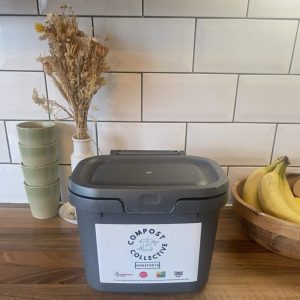
If you don't do so already please feel free to take home your own compost caddy, which you can bring in when full and leave at the pre-school gate for the children to empty.
-Nathalie
New Forest School Ventures
We are excited to now offer a range of Forest School sessions for both adults and children of all ages, lead by our Forest School Leader Daisy.
About your Trainer

Daisy is a Level 3 forest school leader and has worked within several outdoor education and forest school settings across the charity, public, and private sectors. The open-ended nature of forest school is what captures Daisy’s imagination and she loves how learners continually find new ways to use natural objects.
Daisy has a Masters degree in biodiversity and conservation and will use her detailed knowledge to enhance your learning experience. Through studying nature connection, she is aware of the importance of nature for human wellbeing and is a keen advocate for the role forest school can play in this process.
We are offering Home Educations Sessions for children, including SEND sessions and bespoke settings.
https://inspirationsnurseries.co.uk/forest-school-training-and-sessions/
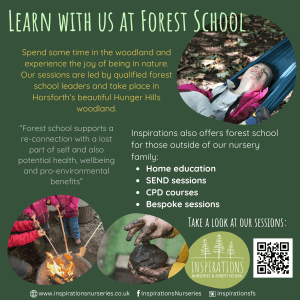
Forest School Training and Events.
Inspirations core values are outdoor play, creativity, and self-directed learning. These values reflect forest school pedagogy and show how outdoor learning is at the heart of what we do here at Inspirations.
Our Forest School Skills for Educational Professionals course offers you the chance to learn more about the forest school ethos and outdoor learning so you can develop your skills and take steps to bring the outdoors into your setting.
Spending one day in a beautiful woodland, the course will cover:
- Introduction to forest school ethos and benefits of outdoor learning
- Understand the importance of nature connection
- Examples of games and activities to use with a class outside
- Introduction to tool use, fires and risky play
- Introduction to reflective practice
Learning with us provides an open and calm learning environment that promotes discussion, conversation, and a relaxed learning pace. You will get to learn about the benefits of learning in nature whilst simultaneously gaining these benefits yourself!
This course is designed for anyone wanting to learn more about forest school and outdoor learning. Whether you are a teacher, TA, early years practitioner, student, or just want to learn more, we welcome you to the woodland.
Our courses may be tailored to your organisation’s needs. If you are wanting to make a group booking for one of our courses, please send an email to daisy@inspirationsnurseries.co.uk
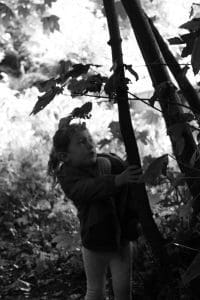
The Importance of Settling into Pre-School Part 2
Adel Inspirations
Read the first part of this blog here- https://inspirationsnurseries.co.uk/settling-into-pre-school/
So why is Pre-School so important? Following on from last weeks blog we break down the fundamentals of settling your child into our Pre-School setting, whether it in Horsforth or Adel. Settling in at preschool is much more than just an adjustment period. It is a crucial process that helps children develop emotionally, socially, and cognitively. A well-supported transition sets the stage for a child’s lifelong relationship with learning, friendships, and independence.
Focus on Prime Areas
Inspirations staff are fully aware that a child’s prime areas of learning should be a primary focus in order for children to feel secure and ready to interact. This is a critical time for communication and language development. As children settle in, they begin to interact more with teachers and peers, enhancing their vocabulary, listening skills, and ability to express ideas. The settling-in period ensures that children feel comfortable enough to ask questions, seek help, and fully participate in group discussions, all of which are crucial for their development. Settling in then allows children to open up to the rich learning experiences offered at Inspirations. As children become comfortable in their new surroundings, they become more engaged in learning activities, arts and crafts, story time and interactive play.
Strengthening Parent-Teacher Relationships
Settling in doesn’t just benefit the child—it’s also an opportunity for parents to build a strong relationship with the preschool staff. Open communication between parents and practitioners is essential to ensure that the child’s transition into preschool is as smooth as possible. During the settling-in period, staff, especially the family’s key person, often communicate regularly with parents about how the child is adjusting, any challenges they are facing, and their daily progress.
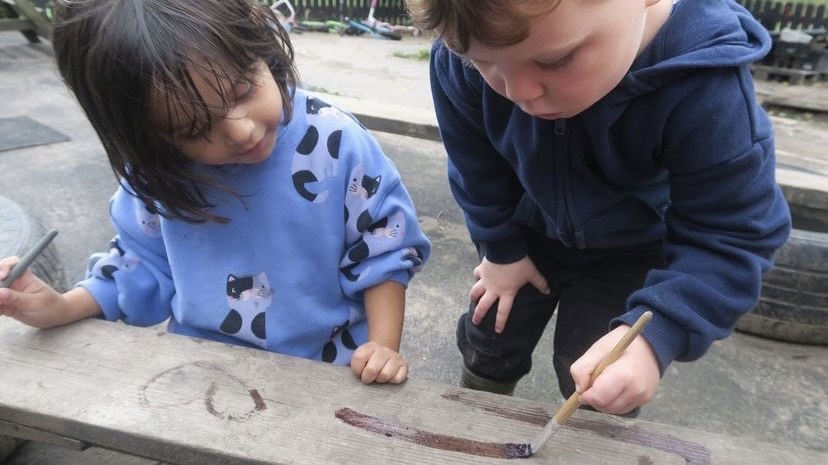
Parents can share insights about their child’s preferences, routines, or any anxieties they might have, which helps staff provide personalized support. This ongoing dialogue fosters trust and ensures that the child’s emotional, social, and academic needs are being met, both at home and at preschool. At inspirations, parents are encouraged to arrange meetings or to phone anytime to discuss their children’s progress rather than just waiting for ‘parent’s consultation evenings’, our lines of communication are always open throughout the year.
Creating a Positive Attitude Toward Learning
Perhaps one of the most significant long-term benefits of settling in at preschool is that it helps create a positive attitude toward school and learning. If a child has a smooth, supportive transition into preschool, they are more likely to associate educational settings with feelings of excitement, curiosity, and joy. This positive association can spark a lifelong love for learning, which is critical for their future academic success.
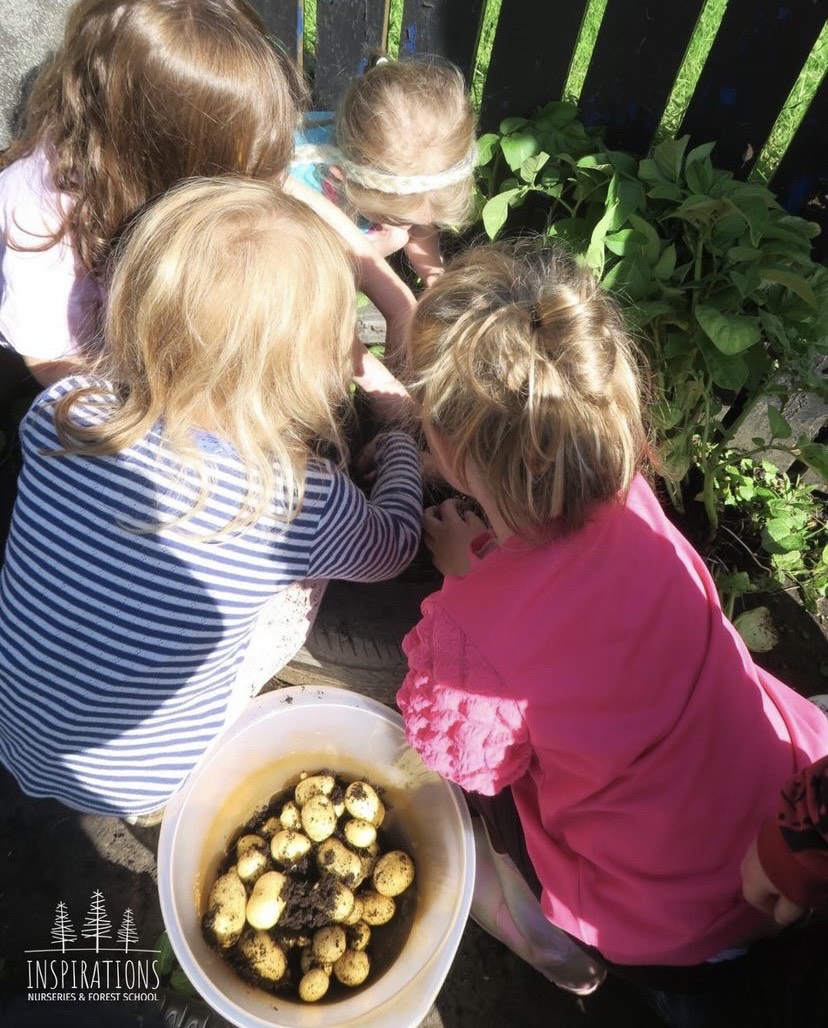
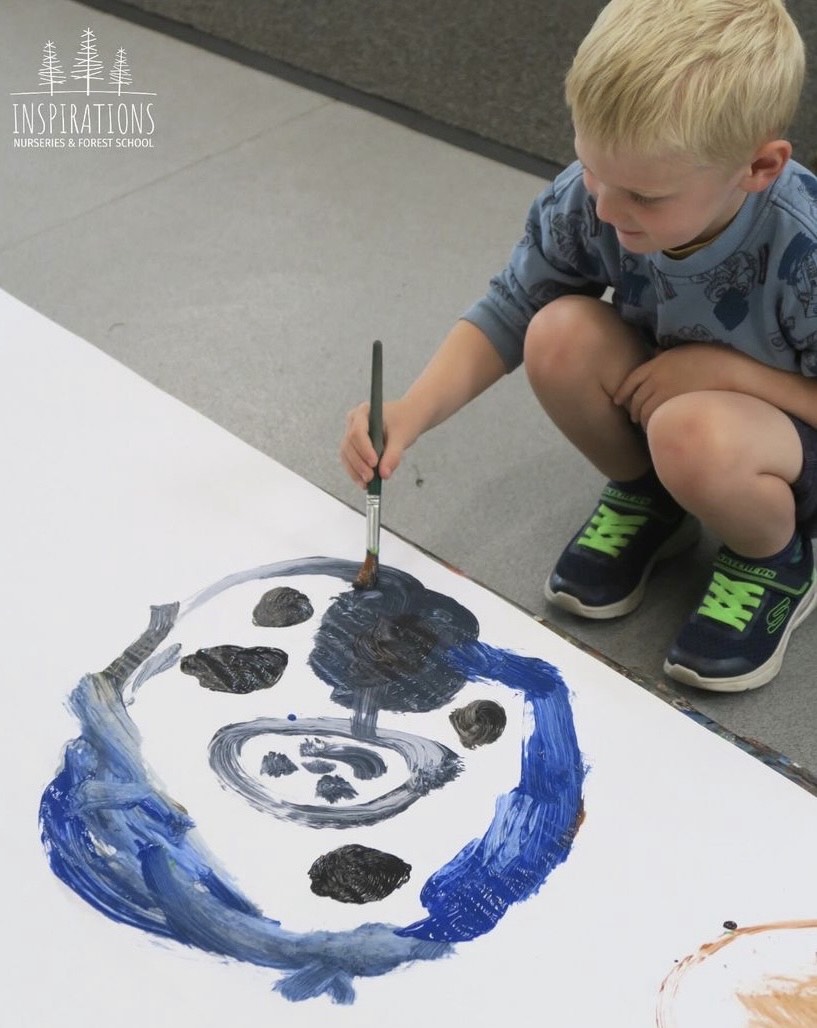
As parents, caregivers, and educators, we should recognise the importance of giving children the time, space, and support they need to settle in and feel confident in their new preschool environment. After all, this is the beginning of a journey filled with discovery, growth, and endless possibilities.
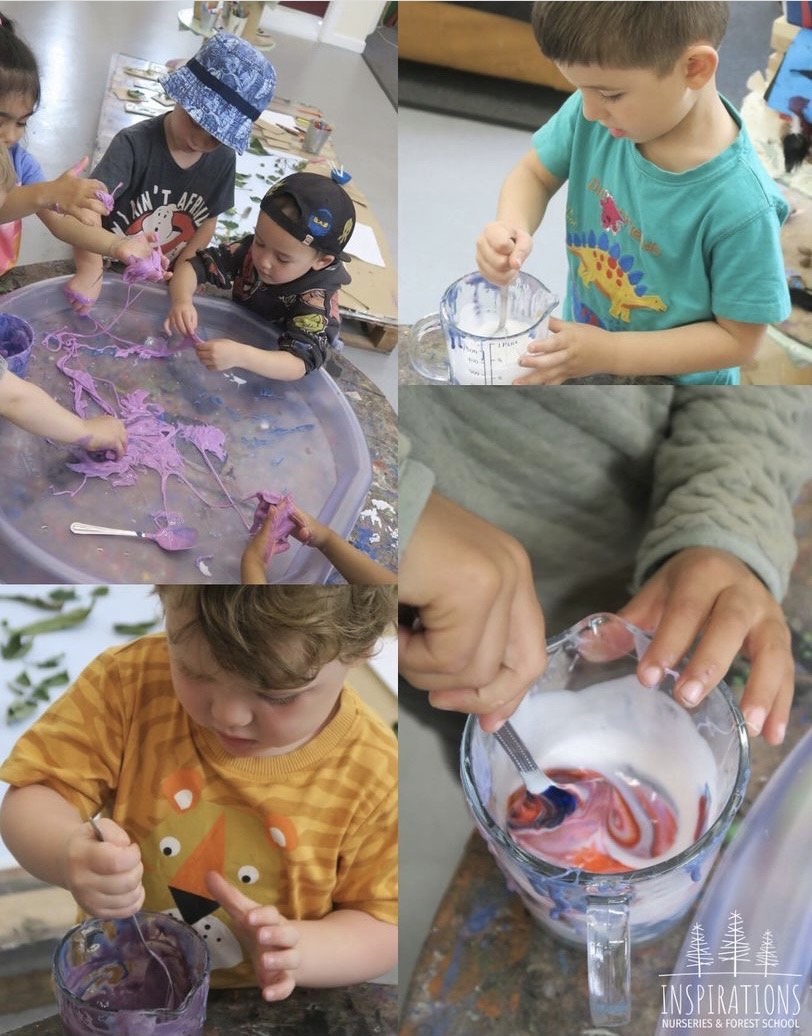 -Deborah (Adel Inspirations Nursery Manager)
-Deborah (Adel Inspirations Nursery Manager)
Adel Inspirations- The importance of Settling Into Pre-School
Part 1
Adel Inspirations
Starting preschool is a monumental milestone in every child's life. It marks the first time many children step into an environment away from their home and parents, where they begin to interact with a broader world of peers, teachers, and structured activities. This transition, while exciting, can also be overwhelming for both children and their families. This is where the process of "settling in" becomes essential. It isn't just about helping children feel comfortable in a new environment—it lays the groundwork for their emotional, social, and cognitive development.
Why settling into preschool is so important.
Building Emotional Security
One of the most immediate benefits of helping children settle into preschool is promoting emotional security. Young children thrive when they feel safe, supported, and nurtured. At home, they rely on their parents or caregivers to provide this sense of security, but at preschool, they need to develop trust in their new environment and the adults who care for them. At Inspirations each family will have a key person who will spend more time supporting and tracking their child’s progress.
A well-planned settling-in period allows children to gradually adapt to their surroundings, helping to ease separation anxiety. Inspirations practitioners and parents work together to ensure the child understands that preschool is a safe place where their needs will be met. This foundation of emotional security is crucial because a child who feels safe and happy is more open to exploring, learning, and forming positive relationships.
Supporting Social Development
Preschool is often a child's first experience in a group setting with peers. Settling in helps children navigate this new social environment. They learn to share, take turns, communicate, and play cooperatively with others. During the early days of preschool, children might be shy or unsure, and some may find it difficult to connect with the other children. A thoughtful settling-in period helps children gradually learn how to form friendships, recognise social cues, and resolve conflicts.
Children also learn the basics of emotional regulation through their interactions in preschool. Staff play a key role in modelling and guiding appropriate behaviour, teaching children how to express their emotions constructively, and helping them navigate challenges. As they settle in, children become more comfortable expressing their needs, feelings, and thoughts, which is crucial for their future relationships.
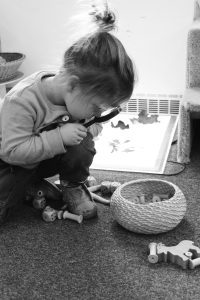
Establishing Routine and Independence
Starting preschool introduces children to routines, which help create predictability and stability. Settling in gives children time to adjust to a new daily schedule—learning when it's time for circle time, snack time, or free play. This predictability helps reduce anxiety and gives children a sense of control over their day.
Additionally, settling into preschool encourages independence. During this period, children are gently guided to take on new responsibilities, like packing their bags, using the bathroom on their own, or tidying up after activities. With time, these tasks become second nature, boosting their confidence and sense of competence.
Next week we will look at positive attitude toward learning and parent-teacher relationships.
-Deborah, Adel Inspirations
